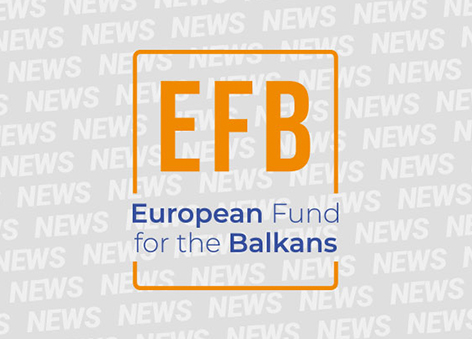
19.01.2015 All News
The countries of the Western Balkans region must increase cooperation for improved efficiency if they are to set in motion and accelerate the currently stalled European integration process. This was the conclusion reached at the EFB Cocktail Reception organised on 12 December 2014 by the European Fund for the Balkans (EFB), which is an initiative of several key European foundations launched in 2007. At this gathering, attended by, among others, the Head of Serbia’s EU accession negotiations team Tanja Miščević, the EFB presented the seventh generation of participants in the EFB’s Fellowship Programme for Young Government Officials from the Western Balkans – Supporting Excellence and Leadership in Governance, scheduled to spend 3 months working for government institutions in EU member states in the forthcoming year.
“Over the course of this year, different signals were coming concerning the European integration process of the Western Balkans. The incoming European Commission President Jean-Claude Juncker stated the obvious when he said that there would be no enlargement during his mandate, and in the new Commission’s composition, he replaced the Enlargement portfolio with the European Neighbourhood Policy and Enlargement Negotiations portfolio. Yet, a summit of Western Balkan leaders in Berlin in August and the recent German-British joint initiative for Bosnia and Herzegovina signals a reinvigorated engagement of a number of EU member states with the Balkans. Despite all this, current efforts to bring the European integration process back on track and accelerate it are simply insufficient. Therefore, a new way must be found to keep the topic of the EU enlargement to the Balkans on the agenda of the European Union, Brussels, and some key EU member states whose support for this process has waned,” said Hedvig Morvai, Executive Director of the European Fund for the Balkans. She added that “the countries of the Western Balkans should persevere with the reforms they started, which are important and valuable as such, and not only as a part of the integration process. By building capacities within the candidate countries, by properly raising public awareness about regional perspectives and by intensifying consultations between politicians, analysts and other European integration and reform experts – the countries of the region will be ready for the continuation of this process.“
The European Fund for the Balkans has launched a number of initiatives and special projects aimed at enhancing communication and cooperation between the countries of the Western Balkans that strongly advocate the continuation of the European integration process and the fulfillment of the great promise given to the region in Thessaloniki, back in 2003.






